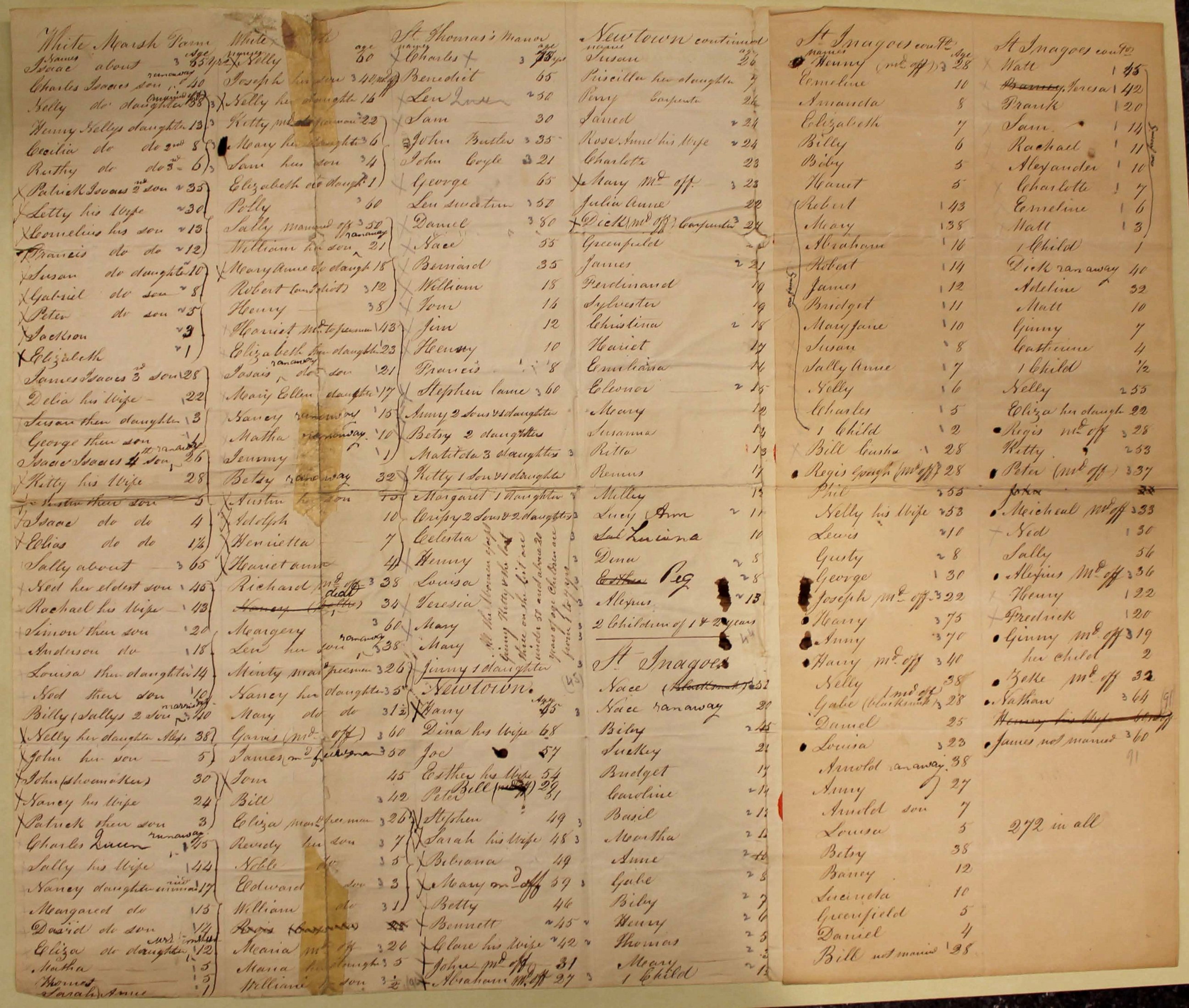Georgetown Univ. Announces Admissions 'Advantage' for Descendants of 272 Slaves Sold in 1838
The school is addressing its early ties to slavery.
— -- Georgetown University has announced that descendants of 272 slaves, from whose sale the school profited in 1838, will receive "an advantage in the admissions process" as part of a larger effort to address the school’s early ties to slavery.
At an event for students today, school president John DeGioia said the university will provide “the same care and respect to the descendants” as it currently extends to members of the Georgetown community, such as faculty, staff and alumni.
DeGioia also adopted other wide-ranging recommendations, including renaming several buildings on campus, developing a public memorial to honor and preserve the memory of those enslaved, and establishing a new institute for the study of slavery at the Washington, D.C., university.
“While all of this may have occurred nearly two centuries ago, we live with the consequences today,” DeGioia said. “Our predecessors may be responsible for these assumptions, but we now have the responsibility to address their manifestations.”
Joe Stuart was among several descendants who spoke alongside DeGioia, saying, “We want a partnership, we are not interested in conflict, we're not talking reparations.
“We're talking about how this university can be an asset to the world in healing some pain and healing racism that is just destroying our society,” he continued.
These actions are the latest in a larger, ongoing conversation at Georgetown, where DeGioia has made the issue a priority in the past year. He created the Working Group on Slavery, Memory, and Reconciliation, which issued today’s recommendations, and has personally met with descendants of the slaves living in Washington State and Louisiana.
Crystal Walker, who graduated Georgetown University earlier this year, now serves on the Working Group, tasked with guiding the university as it addresses its history. “Even though it may be an uncomfortable history, it's important that we engage with it because even if we don't want to admit it we're all impacted by it somehow,” she said in a video presentation at today’s event.
The impetus to address this chapter in school history began last fall, as Georgetown reopened a building named for former campus president Rev. Thomas F. Mulledy, who served from 1829 to 1838 and, again, from 1845 to 1848. Shortly after leaving his position in 1838, Mulledy authorized the sale of 272 enslaved people owned by the Society of Jesus in Maryland for $115,000.
Part of the payment received from that sale of men, women, and children was used to pay down debt at the college.

In a letter to the Georgetown University community in August 2015, DeGioia wrote, “[Mulledy’s] actions represent a difficult past that is contrary to the values and mission of our University -- a mission that we affirm and seek to strengthen in our examination of this history and its impact on our current moment.” Mulledy’s name was removed from that building in November of last year.
Deshawn Cribbs, an African American and a freshman at Georgetown University, said he was glad to hear the university was trying to learn from its history of slavery, telling ABC News, “It helps bring awareness not just to Georgetown's campus but other campuses across the nation.”
Another student, sophomore Victoria Kuz, said the university is heading in the right direction, telling ABC News, “Of course you can never repay anything that happened to these people or their descendants,” adding, “I think it’s a great first step and I hope it does happen and that we see more changes.”
The Working Group report also recommends that Georgetown offer a “formal, public apology for its historical relationship with slavery,” writing in the report, “an apology becomes part of the history. An outright apology is not yet part of the history for the University. It ought to be.”
DeGioia agreed, saying, “In offering an apology we will draw upon the resources of our Catholic tradition…. We will offer a massive reconciliation in which we will seek forgiveness for our participation in the institution of slavery and specifically for the sale of 272 children, women and men.”
The committee has also encouraged the university to send “high-level representatives” to Louisiana and MD, where many descendants are now living, with the hope of building long term relationships, and continuing DeGioia’s face-to-face outreach efforts.
In addressing the group, chair of the Working Group Father David Collins shared one simple request with Georgetown’s students: to read the report.
“I’m here today to encourage, to exhort, to cajole, to plead with you, to read and to reflect upon and to discuss the report,” he said.
“I know this is a long reading assignment, 19,000 words, and 102 pages, but I promise you it’s worth it.”
ABC News’ Karen Travers contributed to this report.




